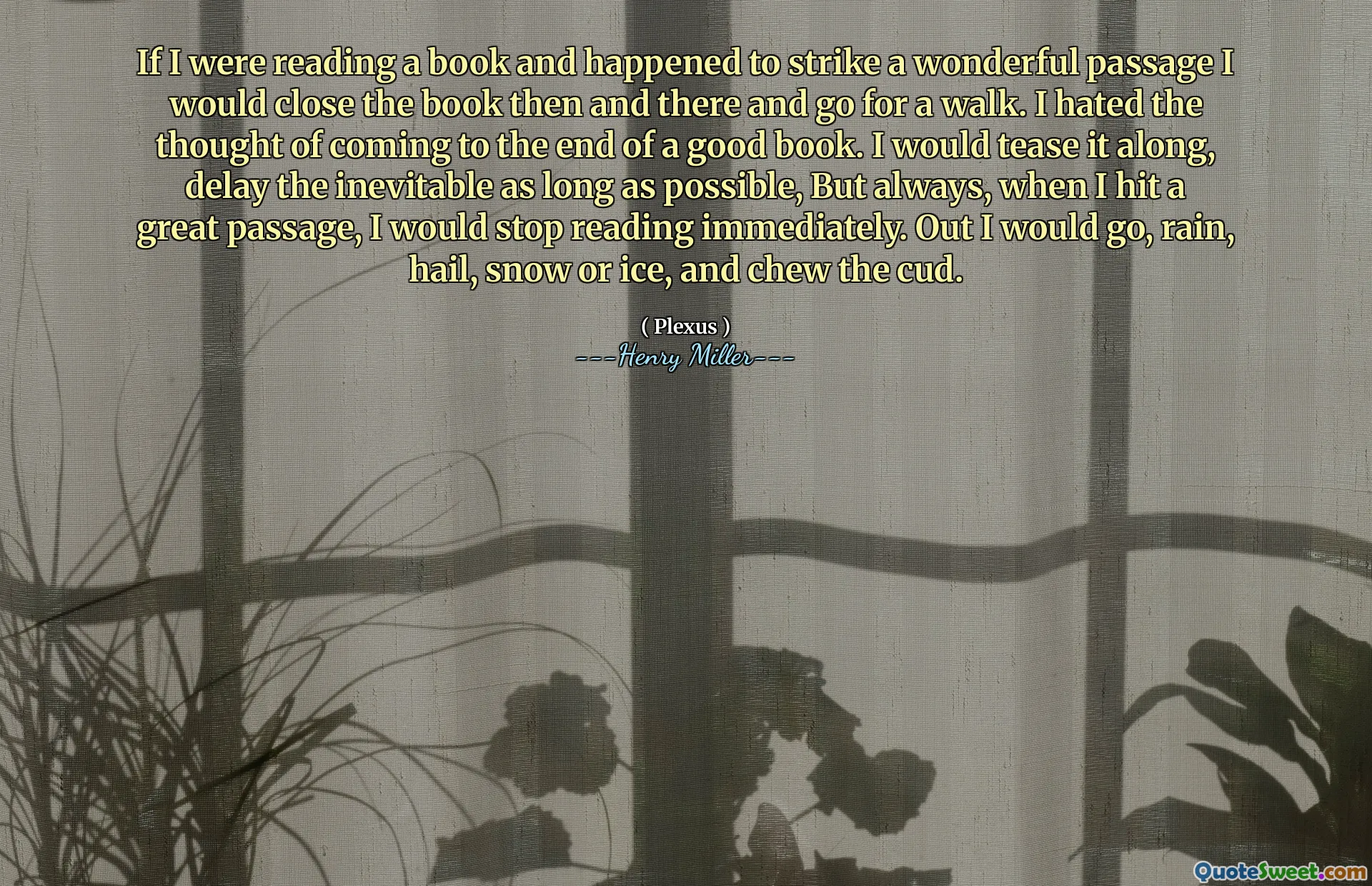
If I were reading a book and happened to strike a wonderful passage I would close the book then and there and go for a walk. I hated the thought of coming to the end of a good book. I would tease it along, delay the inevitable as long as possible, But always, when I hit a great passage, I would stop reading immediately. Out I would go, rain, hail, snow or ice, and chew the cud.
In Henry Miller's book "Plexus," the narrator reflects on the experience of reading, capturing the profound connection between literature and the contemplative exercise of walking. Upon encountering a particularly striking passage, the urge to savor the moment leads to a decision to put the book down, even amidst inclement weather. This ritualism highlights the idea of prolonging the joy of a good read, as the end of a cherished narrative is met with reluctance.
The act of stopping to ponder while taking a walk symbolizes a deeper appreciation for the written word. Miller expresses a desire to extend the pleasure of reading, indicating that the beauty of literature lies not just in its conclusion but in the spaces between the lines that invite reflection. This engagement with the text transforms the reading experience into an ongoing journey of contemplation and enjoyment.






